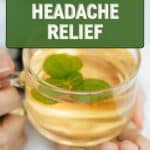Best Herbal Tea For Headaches And Migraine Relief
The best herbal tea for headaches can offer natural relief whether you're dealing with tension, migraine, or cluster headaches. Knowing which type of headache you're experiencing helps in choosing the right tea for treatment.
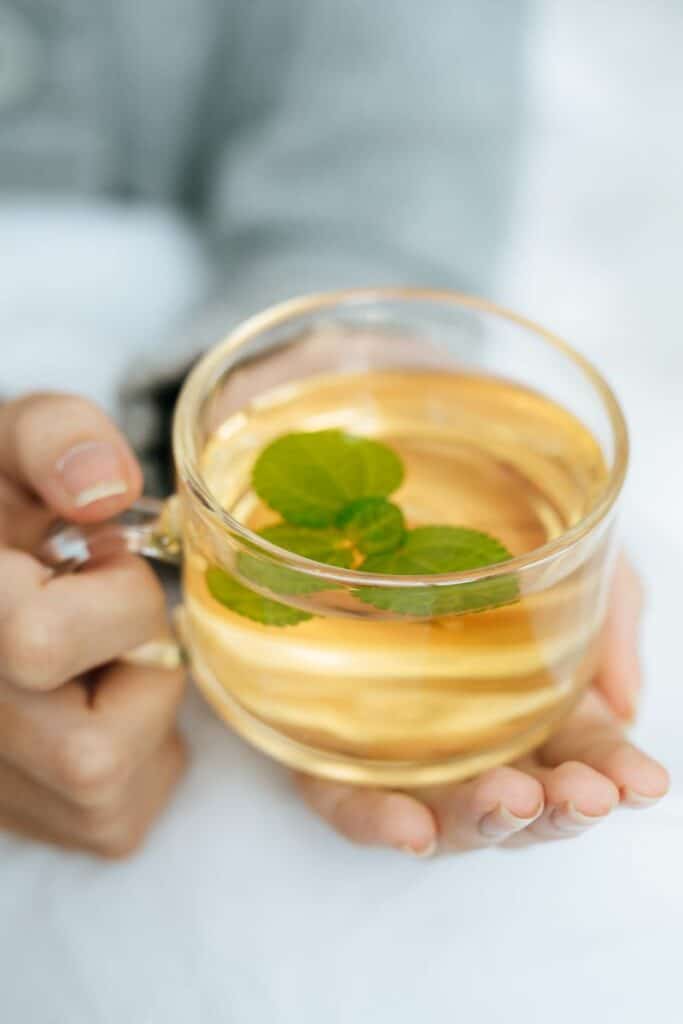
In this article, we'll explore how teas like peppermint, chamomile, ginger, and feverfew not only help relieve pain but also bring a sense of calm. Whether it's soothing a regular headache or preventing migraines, herbal tea is a comforting and effective solution.
Understanding Headaches
Headaches are a common problem that can affect anyone, and they come in different types. Knowing the type of headache you have can help you find the best way to treat it. Here are the main types:
- Tension Headaches: These are the most common kind of headaches. They feel like a constant ache or pressure around the head, especially at the temples or back of the head and neck. They are often caused by stress, muscle strain, or anxiety.
- Migraine Headaches: Migraines are more severe and can cause a throbbing or pulsing pain on one side of the head. They might also come with nausea, upset stomach, and sensitivity to light or sound. Some people see flashing lights or zigzag lines before the headache starts.
- Cluster Headaches: These headaches are the least common but very painful. They occur in groups or “clusters” over a period of weeks or months. The pain is very sharp and usually located around one eye. It can also cause redness or watering of the eye and a runny nose or nasal congestion on the same side of the face.
Common Triggers and Symptoms
Each type of headache has different triggers, such as:
- Tension headaches often start from stress, tiredness, or muscle strain.
- Migraines can be triggered by things like certain foods, changes in the weather, hormonal changes, or loud noises.
- Cluster headaches may be set off by alcohol or smoking.
Besides pain, headaches can cause other symptoms like:
- Tension headaches: feeling irritable, having trouble sleeping, and being sensitive to light or sound.
- Migraines: feeling very sick to your stomach, throwing up, and not being able to do normal activities because of the pain.
- Cluster headaches: a droopy eyelid, small pupil, or a sweaty face, all happening on the same side as the headache.
Understanding the type of headache you have and what triggers it can help you find relief faster. Next, we'll explore how herbal teas can be a good option for easing headache pain.
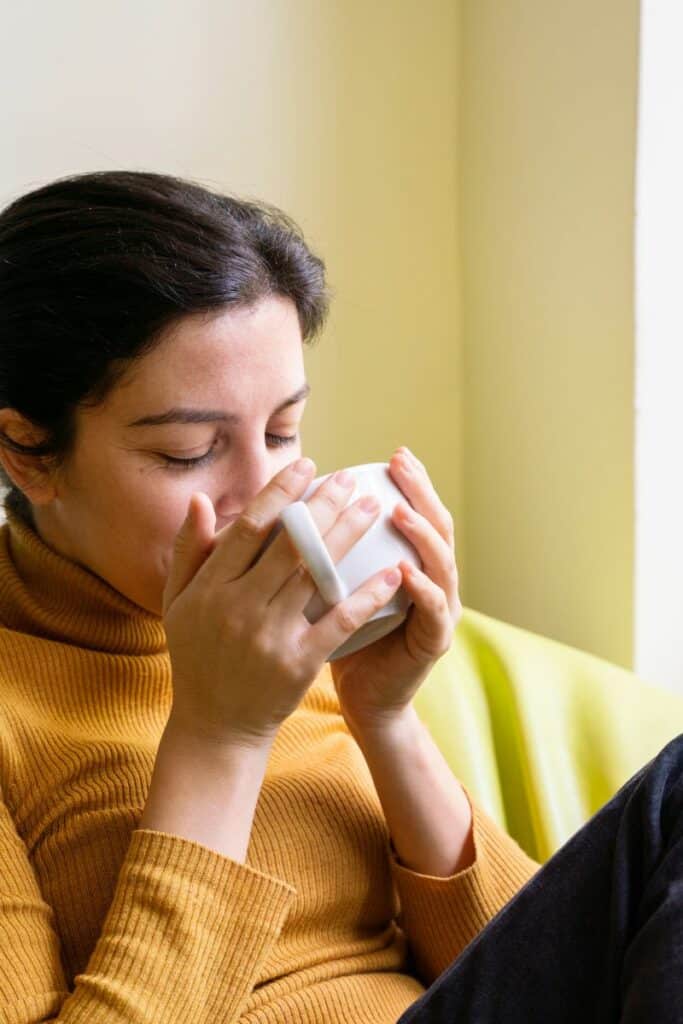
Why Choose Herbal Tea for Headache Relief?
Benefits of Natural Remedies Over Traditional Medicine
Choosing herbal tea for headache relief is a great option for many reasons. Herbal teas are a natural alternative to traditional medicine, which means they often have fewer side effects. Many people prefer using something from nature rather than medicine that comes from a pharmacy. Plus, drinking tea can be very soothing and can make you feel better by just taking a moment to relax with a warm cup.
Herbal teas have been used since ancient times to help with many health problems, including headaches. They are not just about treating pain; they can also help improve your overall health with their powerful antioxidants and anti-inflammatory properties. These teas can boost your blood circulation, which is good for your whole body.
How Herbal Tea Works to Relieve Headaches
Herbal teas can relieve headaches in different ways depending on what herbs are in the tea:
- Peppermint Tea: This tea has peppermint oil, which is a key ingredient for relaxation and pain relief. It helps by calming muscle tension and improving blood flow, which can ease headache pain, especially from tension headaches.
- Chamomile Tea: Known for its calming effect, chamomile tea can help reduce anxiety and stress, common triggers of tension headaches. It also helps improve sleep quality, making it easier for your body to recover from headache pain.
- Ginger Tea: Ginger is an excellent natural pain reliever with properties that can help reduce inflammation and nausea that often comes with migraine headaches.
- Feverfew Tea: Feverfew is a medicinal herb that has been shown in some clinical trials to reduce the frequency of migraine attacks. It affects the way blood vessels work, which is crucial in the control of blood flow during migraine attacks.
- Willow Bark Tea: Often called nature’s aspirin, willow bark tea contains salicin, a natural pain reliever that can help ease the severity of headaches. This tea is particularly good for those who experience pain like that from a sore throat or lower back pain.
Drinking these teas can be a great way to handle different types of headaches. Whether it's a migraine, tension headache, or a cluster headache, there's likely an herbal tea that can help alleviate your symptoms. Remember, while herbal teas can provide relief, it's important to consult with a healthcare professional if your headaches are severe or don't go away, as they can advise on the best treatment methods, including when to use herbal treatments and when stronger medical intervention might be necessary.
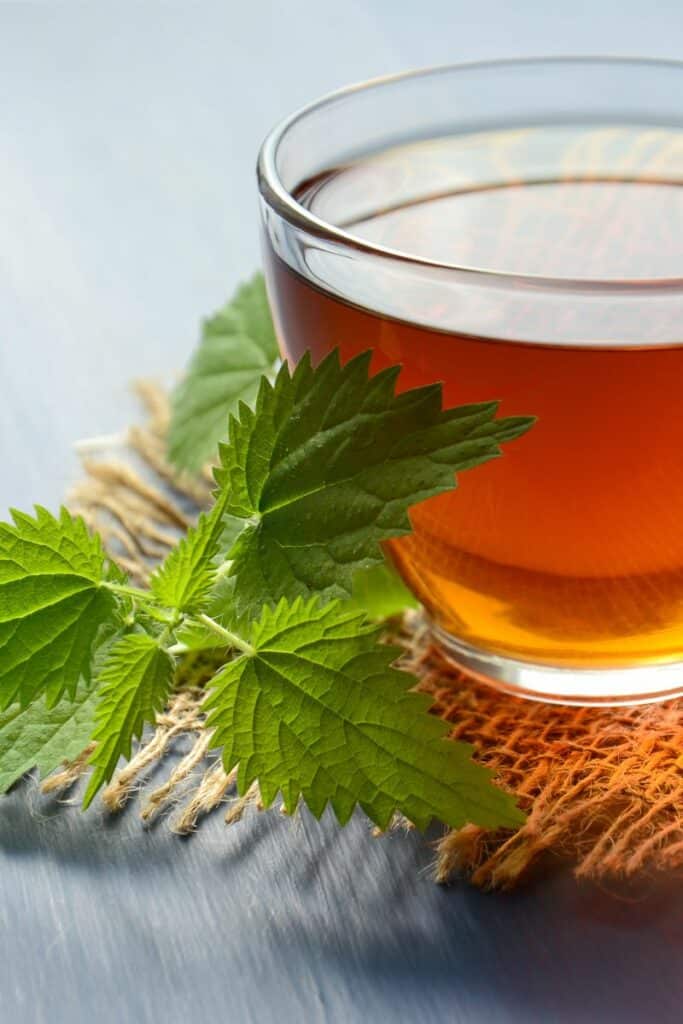
Best Herbal Tea For Headaches & Migraines
Herbal teas can be a soothing and natural way to ease headache pain. Here’s a look at some of the best herbal teas for different types of headaches and how to make them:
1. Peppermint Tea
Benefits: Peppermint tea is great for relieving headaches because it contains menthol, an active ingredient that helps relax muscles and ease pain. It’s especially good for tension headaches and can help improve blood flow and relax the nervous system.
Brewing Instructions: To make peppermint tea, add one teaspoon of dried peppermint leaves to hot water and let it steep for 10 minutes. This releases all the essential oils and flavors.
How It Relieves Symptoms: The menthol in peppermint tea helps open up blood vessels, promoting better blood circulation and relieving the pressure that can cause headaches.
2. Chamomile Tea
Reasons It's Effective: Chamomile tea has a calming effect that can help reduce stress, a common trigger for tension headaches. It also helps improve the quality of sleep, which can prevent headaches caused by fatigue.
Preparation Tips: Use about one tablespoon of chamomile flowers per cup of hot water. Let the tea steep for about 5 minutes. You can drink it before bedtime to help you relax and get a good night's sleep.
3. Ginger Tea
How It Helps: Ginger tea can be very effective for migraine relief. It has powerful anti-inflammatory properties that reduce inflammation around the blood vessels in the brain, easing migraine pain.
Best Ways to Prepare: Simmer a few slices of fresh ginger in water for about 30 minutes to make a strong tea. You can add honey or lemon to taste. Drink it at the first sign of a migraine for best results.
4. Feverfew Tea
Historical Uses: Feverfew has been used since ancient times as a natural treatment for migraines. It’s known to reduce the frequency of migraine attacks and lessen their severity.
Benefits for Migraine Sufferers: The active compounds in feverfew, such as parthenolide, have been shown to help reduce migraine symptoms by controlling blood vessel constriction.
Cautionary Advice: Not everyone should use feverfew. Pregnant women and people taking blood thinners should avoid it. Always consult with a healthcare provider before starting any new herbal remedy.
5. Willow Bark Tea
Benefits: Willow bark contains salicin, a natural pain reliever that works similarly to aspirin. It's effective for easing pain from headaches, especially those with symptoms similar to a migraine, such as sensitivity to light or nausea.
Preparation Tips: Boil a few pieces of willow bark in water for about 10-15 minutes. Strain and drink the tea while it's still warm to alleviate headache pain.
Cautionary Note: Like feverfew, willow bark is not suitable for everyone. It should not be taken by those who are allergic to aspirin or who are under 18 years of age due to the risk of Reye’s syndrome.
Each of these teas offers a unique way to help manage and relieve different types of headaches. Whether you choose peppermint, chamomile, ginger, feverfew, or willow bark tea, these natural remedies can provide relief from pain while also offering other health benefits. Remember to consult a healthcare professional for guidance tailored to your specific health needs, especially if your headaches persist.
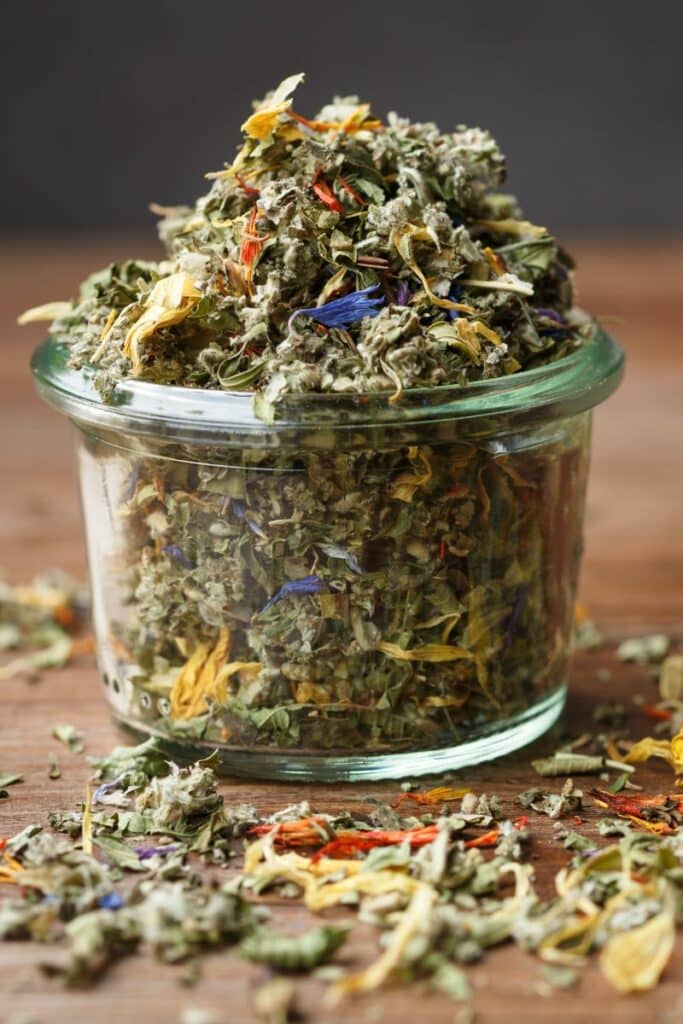
How to Prepare and Use Herbal Teas for Best Results
Brewing the Perfect Cup of Tea
To get the most out of your herbal tea for headache relief, it’s important to brew it correctly. Here’s how to make the perfect cup of tea:
- Water Temperature: Not all teas should be brewed with boiling water as it can destroy some of the delicate flavors and beneficial compounds. For most herbal teas, use hot water that’s just about to reach a boil (around 208°F).
- Steeping Time: This can vary depending on the type of tea. Generally, steep herbal teas for about 5-10 minutes. If you like a stronger tea, which might be helpful for severe headaches, you can steep it a bit longer. Teas like peppermint or chamomile are forgiving and won't become bitter if steeped too long.
Best Times of the Day to Drink Herbal Tea for Headaches
- Morning: If you wake up with a headache or feel one starting, a cup of ginger or peppermint tea can be refreshing and help reduce symptoms quickly.
- Afternoon: Drinking a cup of caffeine-free herbal tea like lavender or chamomile in the afternoon can prevent headaches caused by stress or fatigue.
- Evening: A relaxing tea blend containing lemon balm or feverfew before bedtime can help calm any tension from the day and promote a good night's sleep, reducing the likelihood of waking up with a headache.
Tips on Integrating Herbal Teas into Your Daily Routine
- Regular Intake: For those who suffer from chronic migraines or frequent headaches, incorporating herbal teas into your daily routine can be a preventive measure. Try to have at least one cup a day to potentially reduce the frequency of your headaches.
- Mix and Match: Don't be afraid to try a blend of herbs. Mixing a few different types of loose leaf teas can enhance both flavor and effectiveness. For example, blending white willow bark with ginger can provide both the pain-relieving properties of salicin and the anti-inflammatory benefits of ginger.
- Keep It Ready: If you find a specific tea that works well for your headaches, keep it handy at work or home. That way, you can easily make a cup when you feel a headache coming on.
- Stay Hydrated: Remember, dehydration can often lead to headaches. By drinking herbal teas, not only are you getting the benefits of the herbs, but you're also keeping your hydration levels up, which can itself help prevent headaches.
By understanding how to brew and use herbal teas effectively, you can make the most of their properties to alleviate or even prevent headaches. Always remember to consult with a healthcare professional, especially if you experience frequent or severe headaches, to ensure your approach is safe and effective.
FAQs
Can herbal tea really cure my headaches?
Herbal tea can help manage and relieve headache symptoms for many people, but it might not cure all types of headaches for everyone. It's effective especially for tension headaches and migraines by reducing inflammation, soothing nerves, and helping to manage pain. However, if your headaches are severe or caused by other health issues, it's important to see a doctor to understand the root cause and get the right treatment.
How often should I drink herbal tea for headaches?
How often you should drink herbal tea depends on the kind of headaches you have. If you get headaches often, drinking herbal tea daily might help reduce how often you get them. Some people find drinking tea once a day or when they start feeling a headache coming on is helpful. Remember, it's also about enjoying the tea and making it a soothing part of your day.
Are there any side effects?
Herbal teas are generally safe for most people, but they can have side effects, especially if you drink too much. Some teas contain ingredients like feverfew or white willow bark, which can act like blood thinners and should not be taken with certain medications. Pregnant women or people taking medication should talk to their doctor before starting any new herbal tea, especially if they plan to drink it a lot. Also, some people might be allergic to certain herbs, so it’s good to start with a small amount to see how your body reacts.
Conclusion
Herbal teas offer a gentle and natural way to manage headache symptoms, making them a valuable addition to your health regimen. We've explored several great options:
- Peppermint Tea is perfect for its soothing properties and ability to ease muscle tension.
- Chamomile Tea helps combat stress-related headaches and improves sleep.
- Ginger Tea is effective against migraine pain and associated nausea.
- Feverfew Tea is particularly good for reducing the frequency and severity of migraine attacks.
- Willow Bark Tea acts as a natural pain reliever, great for more intense headache pain.
Incorporating these teas into your daily routine can not only help alleviate headaches when they occur but also contribute to a more relaxed and healthy lifestyle overall. Remember, while herbal teas can provide significant benefits, they are part of a holistic approach to health that includes proper diet, exercise, and medical advice when needed.
If you frequently suffer from headaches, try these herbal remedies as part of your overall strategy to manage symptoms and improve your quality of life. Each cup offers a moment of tranquility and an opportunity to treat your body with care, naturally.

